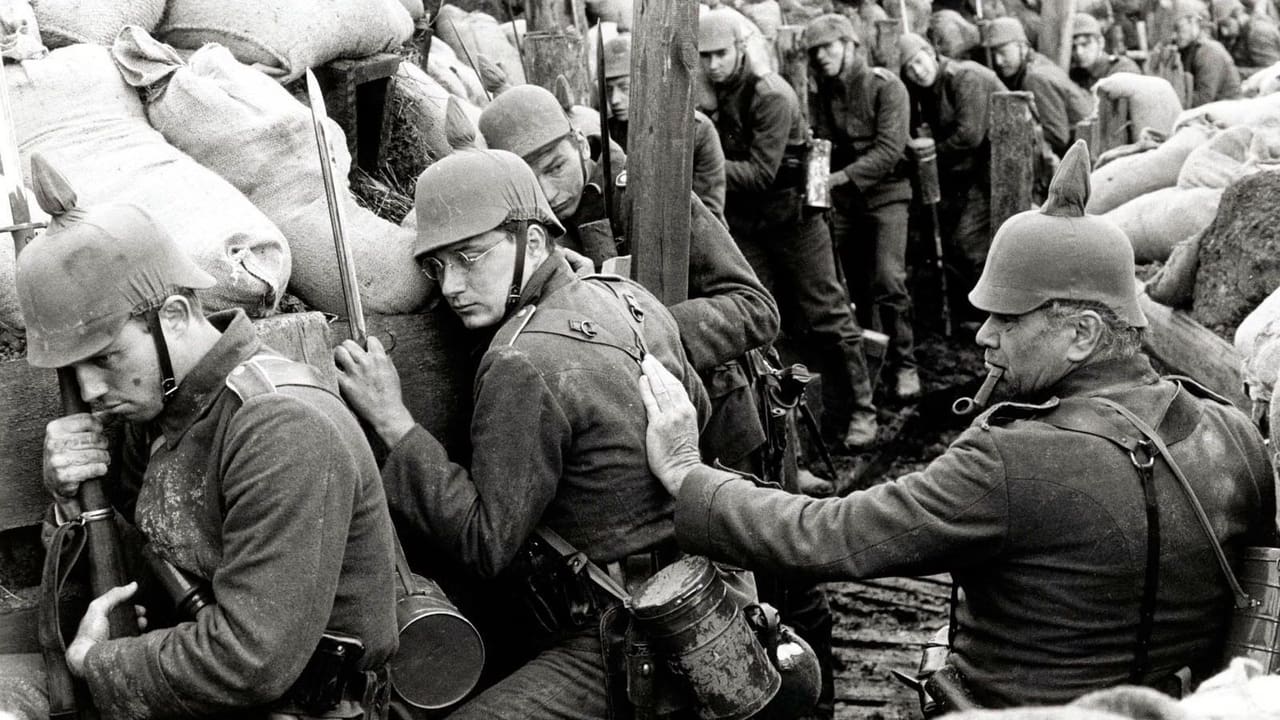

The battle scenes were how I imagine it was. It's hard to capture the horror, but you could almost feel the fear. The naive people at home is realistic due to propaganda from the state media. To go to all the trouble of this great movie, and then put the wrong armistice date at the end was regrettable. There was still heavy fighting on Oct 11. Nov 11 was Armistice Day.
... View MoreI had seen this when it originally aired on TV in 1979 and just watched it again on YouTube. My impressions have not changed in 38 years. Some of the acting is a bit wooden especially by Thomas and it is still weird that even though the unit is comprised of young Germans, you still hear American and various different English accents amongst them. The other actors like Borgnine, Holm, Pleasence and an under utilized Patricia Neal are very good. However the production values alone make this worthwhile viewing. Life on the Western Front of WWI is vividly captured. Desolated landscape, rats, lice, dead bodies everywhere, shell shock, battle fatigue, PTSD (whatever each generation calls it) and just the shear monotony of life on the front. Unlike "Joyeaux Noel", ( a film I do love) no one has the perfect part in their hair or a clean shaven face, everyone is covered in mud and blood all the time. There are a few acknowledgements to its more well known predecessor like the hands on the barbed wire and Paul's aiding of Kat towards the end. Whereas the original tells the story in a more linear fashion, this one sticks closer to the book where Paul recounts his education and recruitment story in flashback. Still a very powerful anti- war film that can stand proudly alongside the more well known classic.
... View MoreI keep recalling the Donovan song, "Universal Soldier". Well, here is that theme on the screen. Young men jingoed into "serving" their country, training, fighting, killing and sometimes reflecting, regretting.We see the school masters urging these bright boys, when in reality they are giving their body and soul to the politicians of the day. So sad... and nothing much has changed in a hundred years. "There is no alternative", say the jingoists.Richard Thomas in one of his best roles and performances is Paul, one of several in his school. We see them develop from naïve boys, they are trained by crawling through the mud at the command of the corporal, later, we see the Kaiser urging them on. We see the boys at the front and in an especially moving scene they meet some French girls and what ensues. Not much later, Paul meets a French soldier, dying. (Ernest Borgnine is an older, more experienced soldier. Another great performance.This movie really ought to be compulsory viewing for all recruits of all armies? and the politicians too.
... View MoreThis movie is clearly underrated when compared to THE moral beacon of war movies: "Full Metal Jacket". For several reasons, I find this masterpiece on par with the latter film by Stanley Kubrick.First, there is the clear notion of the "dehumanization process" at the start of both films, but in my opinion, the viewer is better reminded of this process towards the end of this film, when we see the main character reflect on the past years and concludes that he has been transformed into a broken man, only to realize that he will never fit into normal life again. In this respect, the final scene is almost merciful.Secondly, when watching the film I was reminded of an HBO documentary I saw last week about PTSD and war trauma. "All quiet on the Western front" managed to capture the very essence about this condition in a time where the term "PTSD" hasn't even been coined (as far as my sources are accurate, that was only in the next year, 1980, and it was still very much of a mystery at that time).Add to that the superb performances and compelling screen play, and I can only conclude that this film is an absolutely must see!
... View More